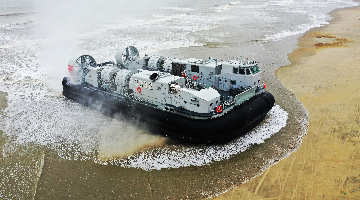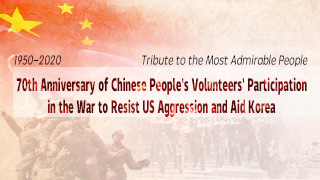By Xu Shiwei
The UK has recently released several strategic documents expounding its national defense, diplomatic and national security strategies, as well as the roadmap of its future military reform. It’s worth noting that the UK mentioned in these documents many times that the Asia-Pacific will command a more critical position in the global geopolitics and economic landscape, and it will seek to enhance its military presence in the region.
As a country outside of the Asian-Pacific region, the UK’s eager deployment in the region is driven by deep considerations.
First, it is implementing the “Global Britain” strategy. To play a role on a larger platform and refrain from becoming isolated and conservative after Brexit, various circles in the UK agree that the country should look beyond Europe and assume a genuinely global role in the world. London has launched the so-called “Global Britain” strategy, and its military deployments in Asia-Pacific are a concrete step to enhance its presence and implement the strategy.
Second, it is strengthening the Anglo-American alliance. London takes its relationship with Washington as the most important bilateral tie and a vital foundation for maintaining its security and development interests. The US has recently proposed the so-called “Pacific Deterrence Initiative”as part of the plan to increase its military input in the Asia-Pacific and restrict the “Anti-Access Area Denial” capabilities of potential rivals in the region. Under such circumstances, the UK following in the US’ step of ramping up military presence in the region is aimed to strengthen the alliance.
Third, it is pursuing its national interests. The Asia-Pacific is becoming the focus of global geopolitics and geo-economy. Not only the US, Japan, India and Australia have all reached their hands to the region, but European countries such as Germany, France and the Netherlands have also formulated and rolled out their own “Indo-Pacific strategy”. Therefore, Britain’s increase of troops in the Asia Pacific is a preemptive step to pave the way for getting a slice of the action in the future.
There is no denying that the UK, a powerful empire in the past, is sufficiently driven from inside to turn to the Asia Pacific. Brexit has taken a toll on its reputation in Europe, so the country hopes to try its hand in the Asia Pacific as an “order defender”, only its ambition will hardly make a stir given the domestic and international landscape.
For one thing, the UK is troubled by both internal and external problems. Brexit has exposed structural problems in its social and economic mode in the background of international competition, and the COVID-19 pandemic has further revealed its social shortcomings. At present, Britain’s national debts have soared to 2 trillion pounds. Although it boasts the fifth largest military spending globally with a military budget of USD 55 billion, that’s just a drop in the ocean compared to its ambitious plan for getting its hand in the Asia Pacific.
For another, the Asian-Pacific situation remains uncertain and complicated. Currently, the region is under the global spotlight as it is the target of major-country contention. Although countries like the US and Japan have expressed welcome to UK’s joining and tried hard to rope it in, they are driven by their own interests. Given the intense competition among various parties, there is a big question mark on what kind of a role Britain will play in the region and how it can realize its interests. In brief, it’s not a wise move for the UK to go with the stream of engaging in the Asia Pacific.











